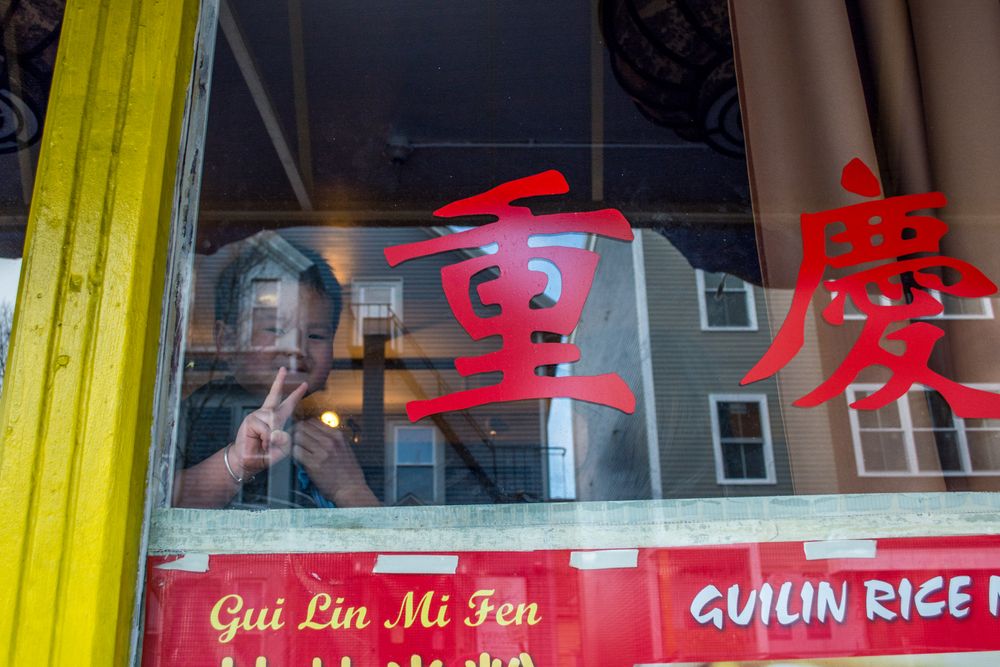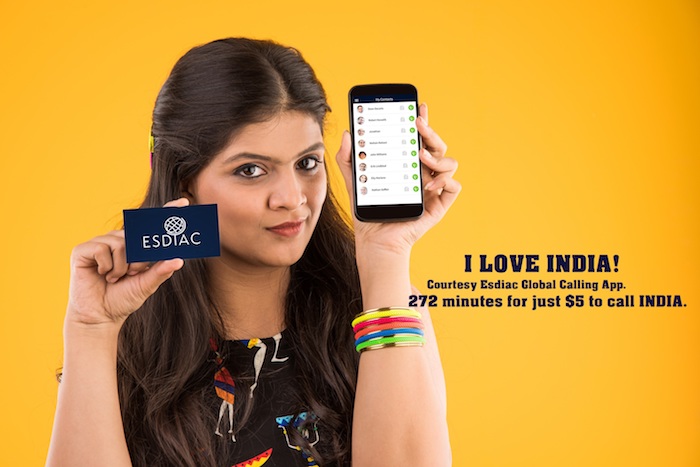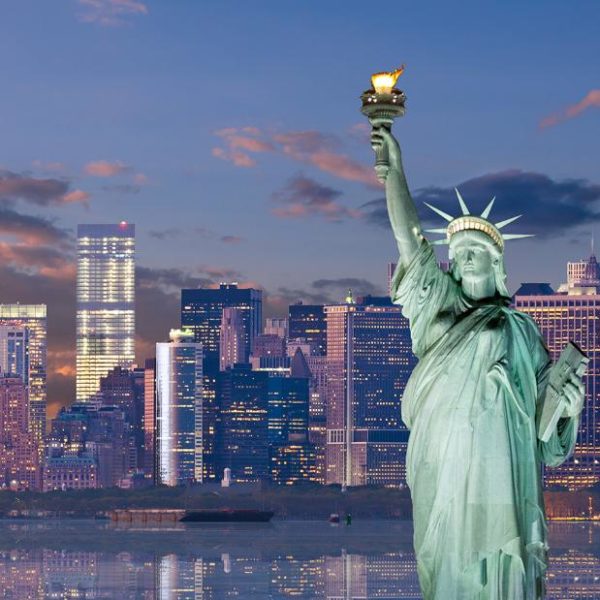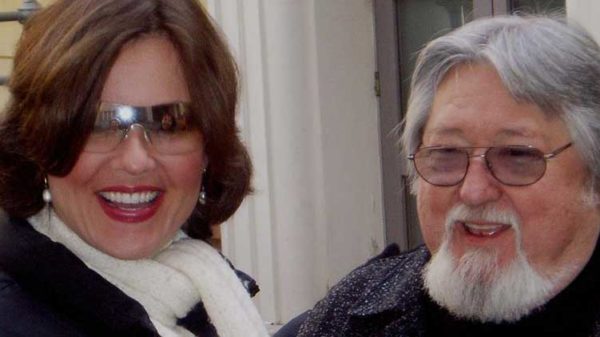Wende Chen, the owner of the Chong Qing House restaurant, experienced the virus through his family in China. Now, he worries about the future of his own family’s American dream.
Magazine, The Immigrant Experience, The Public Radio, By Angela Zhang

Wende’s son, Allen, inside Chong Qing House
Angela Zhang
Wende Chen came to the United States in 2007. Ten years later, he opened Chong Qing House, a Sichuanese eatery on Wickenden Street. It’s known for its spicy, flavorful food and liberal use of hua jiao, the numbing Sichaunese peppercorn. At dinnertime, the restaurant fills with students from surrounding colleges, local families, and Chinese restaurant owners on break.
Now, all the lights are off and the doors are locked. Wende and his wife cook in the back and prepare takeout orders, but the rest of the employees are on leave. “I didn’t want to increase their worry by continuing to work and expose themselves”, Chen said. He sent them home after they expressed their concern about the pandemic.
I felt this disquiet when I ordered takeout. I stood outside while they handed me my order through a cracked open door. Wende’s 3-year-old son, Allen, patted his hands on the window from the inside and waved at me. Around me, the streets were empty. It’s eerie not to see anyone on a street usually busy with bars and restaurants.
Providence has only felt this strange for several weeks, but for Wende, it feels like the virus is old news. Most of his family still lives back in Dazhou, a city of 5.5 million. It’s about 800 miles inland from Wuhan, where the first cases of COVID19 were reported back in November. He isn’t surprised that the virus spread into a pandemic. “Actually, once the Chinese government started the lockdown, I knew then that this was not going to be a simple thing,” Chen said.
Wende’s family lives in the Sichuan province. There, and all across China, officials stationed themselves at neighborhood exits, entrances to stores and offices, and even parking lots. They checked people’s temperatures multiple times a day along their travel routes. They also enforced mask wearing.
“It’s just an infectious disease, so if you can control the vector and transmission then there is nothing to infect,” said Chen. In other words, it was all about checking the spread of the virus.
Folks scanned their profile’s QR codes on Wechat, China’s main social app, when they went out, which kept track of their total outings. Wechat also became a hub of resources and advice for individual neighborhoods. Luckily, because Lunar New Year celebrations were in mid-January this year, folks had already traveled home for the holiday. Since households had already stocked up on groceries, people didn’t need to leave their houses much during the virus peak.
Even when COVID19 cases were surging in China, Wende was not concerned about his family back in Dazhou because he thought the Chinese government response was very robust. But now that the U.S. has become the world hot spot for COVID19, his family in China is worried about Wende and his family in Providence. Specifically, they disapprove of how the American government is handling the crisis.
“First, Trump says what he wants and doesn’t realize that he has impact with what he says,” said Chen. “Second, I feel that Americans value individual freedom while the Chinese are very obedient. People here are still moving around, no one is screening them for symptoms.”










